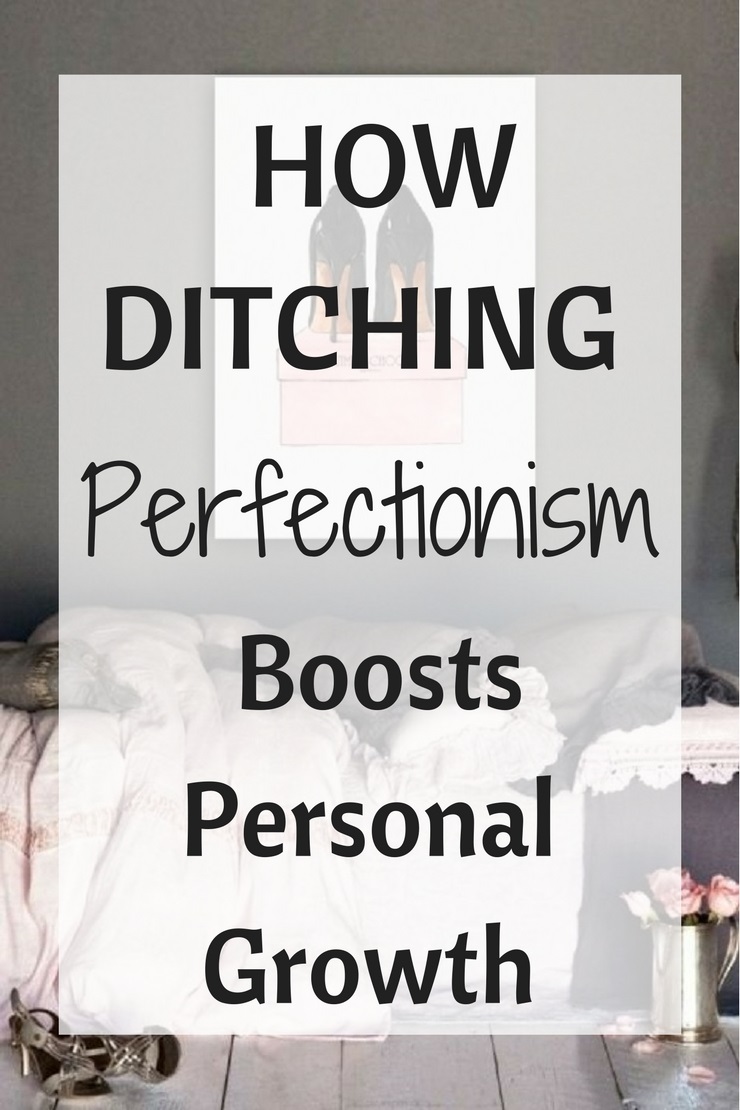When
you call someone a perfectionist, do you mean it as a compliment? Do you look
at a co-worker or friend with a pinch of envy and think to yourself:
"she's a perfectionist—no wonder she looks perfect and, at the same time,
juggles all her tasks and manages her work life so well." Well, you may
want to think again. Refusing to accept any standard short of perfection comes
with the tendency to be orderly, detail-oriented, conscientious about following
rules and doing what is right and "proper.” This often comes with a price tag,
however, because the same person may be afraid of making mistakes and tries to
compensate for her shortcomings by being over-controlling and inflexible about
what she expects from herself as well as from others. I recommend a great post
on The Everygirl blog by psychologist Sara Seung-McFarland listing 5 reasons
to ditch perfectionism.
Courage,
on the other hand, is about confronting uncertainty, facing difficulty, and working
out how to let go— all things you learn on the job. It is about the mind
or spirit enabling a person to make emotional leaps of faith.
Isn't
that the total opposite of perfectionism? How can you have the courage to do
anything unfamiliar or out of your comfort zone if you are looking to do things
perfectly? You can only really have an element of control over an outcome when you
are treading in familiar territory where you know exactly how much effort is
required.
When
traveling down an entrepreneurial road, it is critical to understand the subtle
difference between perfectionism and courage. I had always considered "perfectionism"
a compliment, until I realized how much it was a stumbling block on my way to real
progress, but changing my perception was no mean feat. The distinction between
perfectionism and trying to be your best is so small that you can easily go
through a lifetime without needing to confront it.

Here
are 5 reasons why courage might be a key factor in releasing us from the slippery
mindset of perfectionism:
1. The
courage not to do everything perfectly will help avoid backing out in the first
place
The first unhappy result of perfectionism has to do with
the state of mind that browbeats us into either doing everything perfectly or
backing out entirely. It is not the doing everything perfectly that concerns me
but rather the second part that can be dangerous. Perfectionism often means that
we will not even allow ourselves to get into a situation which we are not sure how
to handle. Worse still, we will not allow
ourselves to get into a situation, unless we are confident we will shine. Just
imagine how many undiscovered opportunities we will miss out on. What can change this pattern of not trying for fear of
not excelling? Courage. We may be perfectionists, but we must also have the courage to take risks and
reach for the unknown.
2. Courage
as a catalyst for gaining confidence
The pursuit of perfection can be a confidence killer. Doing
everything perfectly can be perceived as creating a sense of achievement and
therefore confidence, but in reality it can lead to that snowballing of anxiety
and stress to the point where we can neither relax nor escape negative thinking.
Ironically, instead of improving us, perfectionism may actually drive us away
from our most perfect selves. By courageously setting goals and achieving them,
we can regain our self-confidence; we should aim to get our best results but
not according to some kind of perfect scale set by the standards of others.
3. Courage
may revitalize mastery
Mastery is important for entrepreneurs. There are so many
new skills and new aspects about building a business that need to be learned.
Mastery isn’t about becoming the best social marketing expert or the best
speaker, for example; the significance of mastery is in the process and
progress. It is about learning to develop an appetite for challenges regardless
of our confidence in overcoming them and our familiarity with the matter at
hand. It is the courage to face these hurdles and not let them stop us from
trying that matters; that is what promotes personal growth. Perfectionists may
find themselves quitting before they reach a dead-end, because they fear never reaching
the point of excelling in any particular skill.
4. The
courage to face risks and not be afraid of failure
The fortitude to step out of our comfort zone doesn't come
from following rules and expectations but from the willingness to be different,
to venture into the unknown, and not to fear failure. As perfectionists, we
probably let our doubts consume us, and we give up even though, with a little
optimism and courage to face the outcome, it is easier to keep on going. The
courage to keep on trying and persevere, even as we make mistakes, is unattainable
unless we ditch the perfectionist voice inside our head.
5. The
courage to adjust to change and to add action to our set of tools
Being able to adjust to the rapid changes, technological
and other constantly happening around us will soon not be enough. We will need
to create the change; fashioning our own reality will become an inherent part
of our behavior, no more a reactive approach but a constant proactive listening
to and subsequent pursuit of our needs and urges. But it isn’t enough just
to listen to that inner voice and let it guide us. Courage is that essential ingredient
that can turn thoughts into actions. And embracing action into our set of tools
is what makes thing happen and turns imagination into reality.
This
week the blog was about courage and perfectionism and how the two interact: it
started with eye-catching prints—a more
courageous fashion choice representing an attitude which shuns perfection or
conventional style rules — and then continued with flower arrangements which
make their impact with no need for perfection. This balance of aiming for the best but fearlessly looking beyond perfect
results can be key for reaching our best selves.


You can choose to comment as a guest.